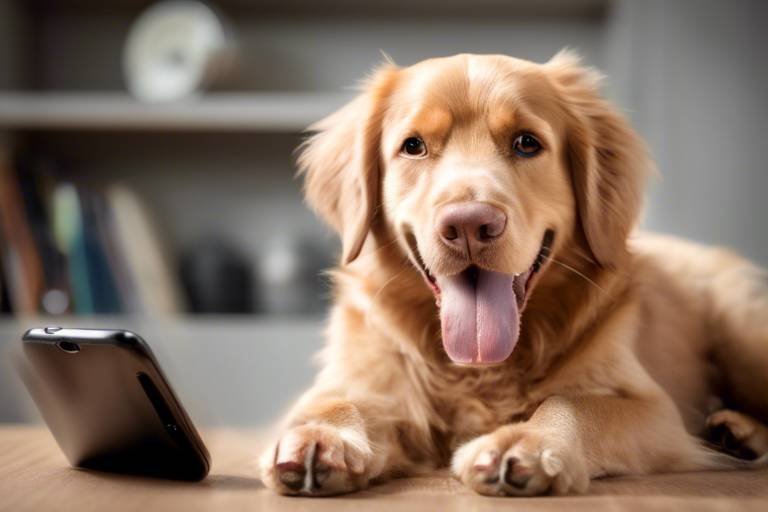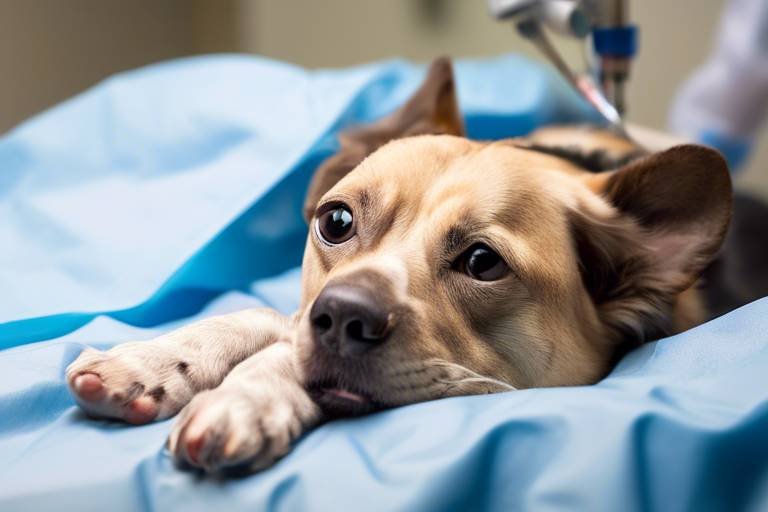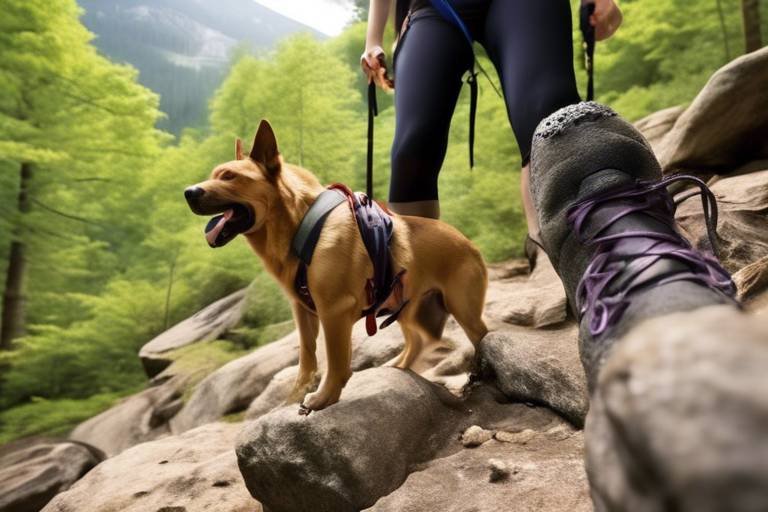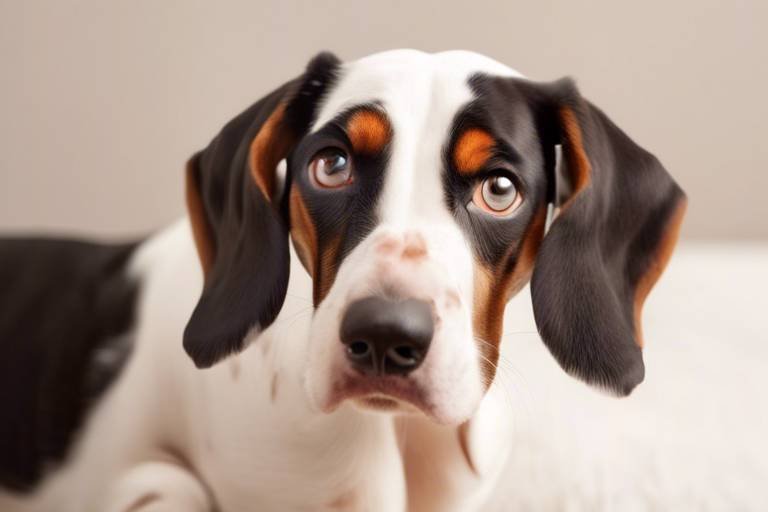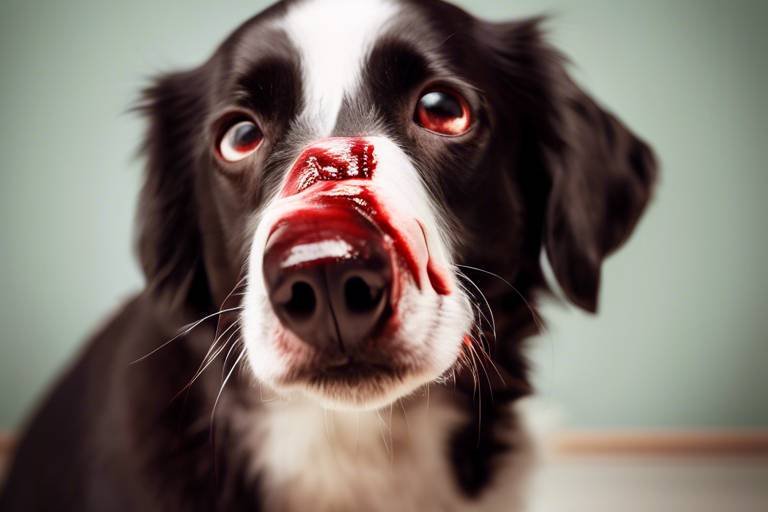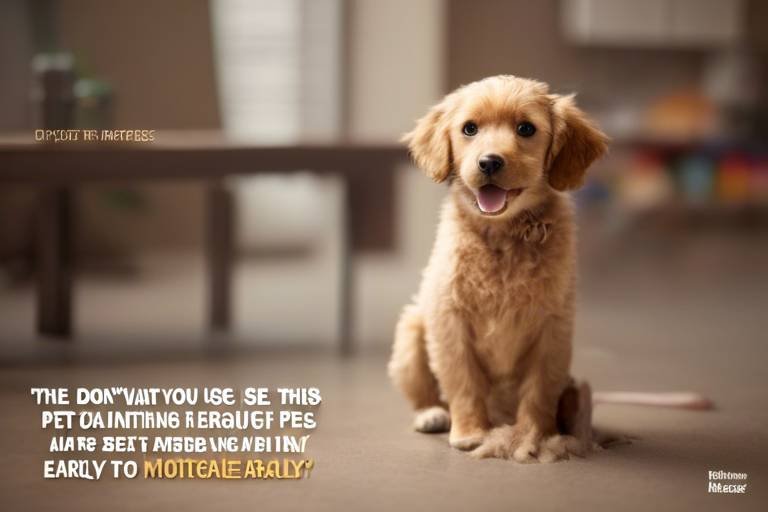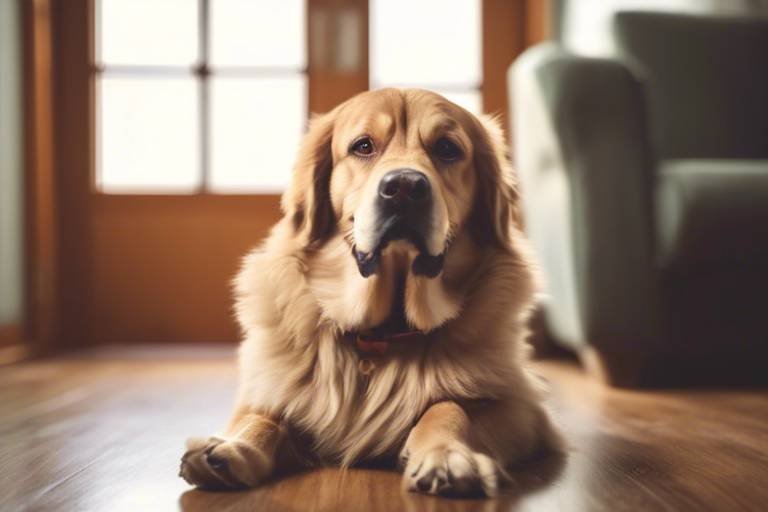The Importance of Pet Safety During Fireworks
Fireworks can be a dazzling spectacle, lighting up the night sky and filling the air with excitement. However, for our furry friends, this celebration can quickly turn into a nightmare. The loud booms and bright flashes can trigger intense fear and anxiety in pets, leading to distressing behaviors and, in some cases, dangerous situations. It's essential for pet owners to recognize the importance of pet safety during fireworks displays, ensuring that our beloved companions are protected from the chaos that often accompanies these events.
As a pet owner, you might find yourself asking, "How can I keep my pet safe and calm during fireworks?" Understanding the impact of fireworks on animals is the first step. Many pets experience heightened stress levels during these events, which can manifest in various ways, such as hiding, barking, or even attempting to escape. This is not just a minor inconvenience; it can lead to serious injuries if a pet tries to flee or if they become overly agitated.
Moreover, the aftermath of fireworks can be equally concerning. Stray debris and leftover materials can pose health risks to pets who might be tempted to investigate. Therefore, taking proactive measures is crucial for ensuring their safety and well-being. By creating a plan that includes preparations before the fireworks begin, as well as understanding your pet's behavior, you can help them navigate this stressful time with greater ease.
In the following sections, we will delve into various strategies to protect your pets, from understanding their anxiety to implementing effective safety precautions at home and outdoors. By being informed and prepared, you can transform a potentially frightening experience into a manageable one for your furry friends.
Fireworks can cause significant anxiety in pets. Understanding the signs of anxiety in animals is crucial for effective management and ensuring their comfort during loud events. Pets may exhibit a range of behaviors when they are anxious, from trembling and hiding to excessive barking and destructive actions. Recognizing these signs early can help you take the necessary steps to alleviate their stress.
Some common signs of anxiety in pets include:
- Trembling or shaking
- Hiding or seeking refuge
- Excessive barking or vocalization
- Destructive behavior, like chewing furniture
- Loss of appetite or reluctance to eat
Understanding these signs is the first step in managing your pet's anxiety and ensuring they feel safe and secure during fireworks. Remember, your pet relies on you to provide comfort and reassurance, so being aware of their emotional state is essential.
Creating a safe and secure environment at home can help alleviate your pet's stress. Simple preparations can make a significant difference in their comfort levels during fireworks. Start by ensuring that windows and doors are securely closed to minimize noise and prevent escapes. You might also consider using heavy curtains or soundproofing techniques to further reduce the impact of loud noises.
Implementing soundproofing techniques, such as using heavy curtains or white noise machines, can help reduce the impact of loud noises on your pets, creating a calmer atmosphere. White noise can mask the sounds of fireworks, providing a soothing backdrop that helps to drown out the chaos. Additionally, consider playing soft music or turning on a fan for added sound coverage.
Designating a quiet area in your home where pets can retreat during fireworks can provide them with a sense of security and comfort, minimizing their anxiety. This space should be away from windows and doors, equipped with their favorite blankets and toys. Make it a cozy spot where they feel safe, and encourage them to use it when they feel frightened.
Calming products, such as anxiety wraps or pheromone diffusers, can help soothe pets during stressful situations, making them feel more secure amidst the noise of fireworks. These products can provide a comforting pressure or release soothing pheromones that help to calm anxious pets. Consult your veterinarian for recommendations tailored to your pet's specific needs.
Behavioral training techniques can help pets cope with loud noises. Gradual exposure to similar sounds can desensitize them and reduce their anxiety over time. Consider using recordings of fireworks at a low volume during non-stressful times, gradually increasing the volume as your pet becomes more comfortable. This method can help them associate the sounds with positive experiences rather than fear.
If you plan to take your pets outdoors during fireworks, it’s essential to follow specific safety precautions to ensure their well-being and prevent accidents. Always keep your pets on a leash and ensure they have proper identification. This will help prevent them from running away in fear when the fireworks start. Additionally, consider timing your walks or outdoor activities around fireworks displays to keep your pets safe and reduce their exposure to sudden loud noises.
Always keep your pets on a leash and ensure they have proper identification. This will help prevent them from running away in fear when the fireworks start. A collar with an ID tag and a microchip can significantly increase the chances of a safe return if your pet does get lost.
Timing your walks or outdoor activities around fireworks displays can help keep your pets safe and reduce their exposure to sudden loud noises. Plan your outings for earlier in the day or after the fireworks have concluded. This simple strategy can make a world of difference in keeping your furry friends calm and secure.
Q: What should I do if my pet is terrified of fireworks?
A: It's essential to provide a safe space for your pet and use calming products. Gradual desensitization through sound exposure can also help.
Q: Are there specific breeds more prone to anxiety during fireworks?
A: Yes, some breeds, such as herding dogs and terriers, may be more sensitive to loud noises. However, every pet is unique, and individual responses can vary.
Q: Can I use medications to calm my pet during fireworks?
A: Consult your veterinarian for advice on medications or supplements that may help your pet during stressful events.
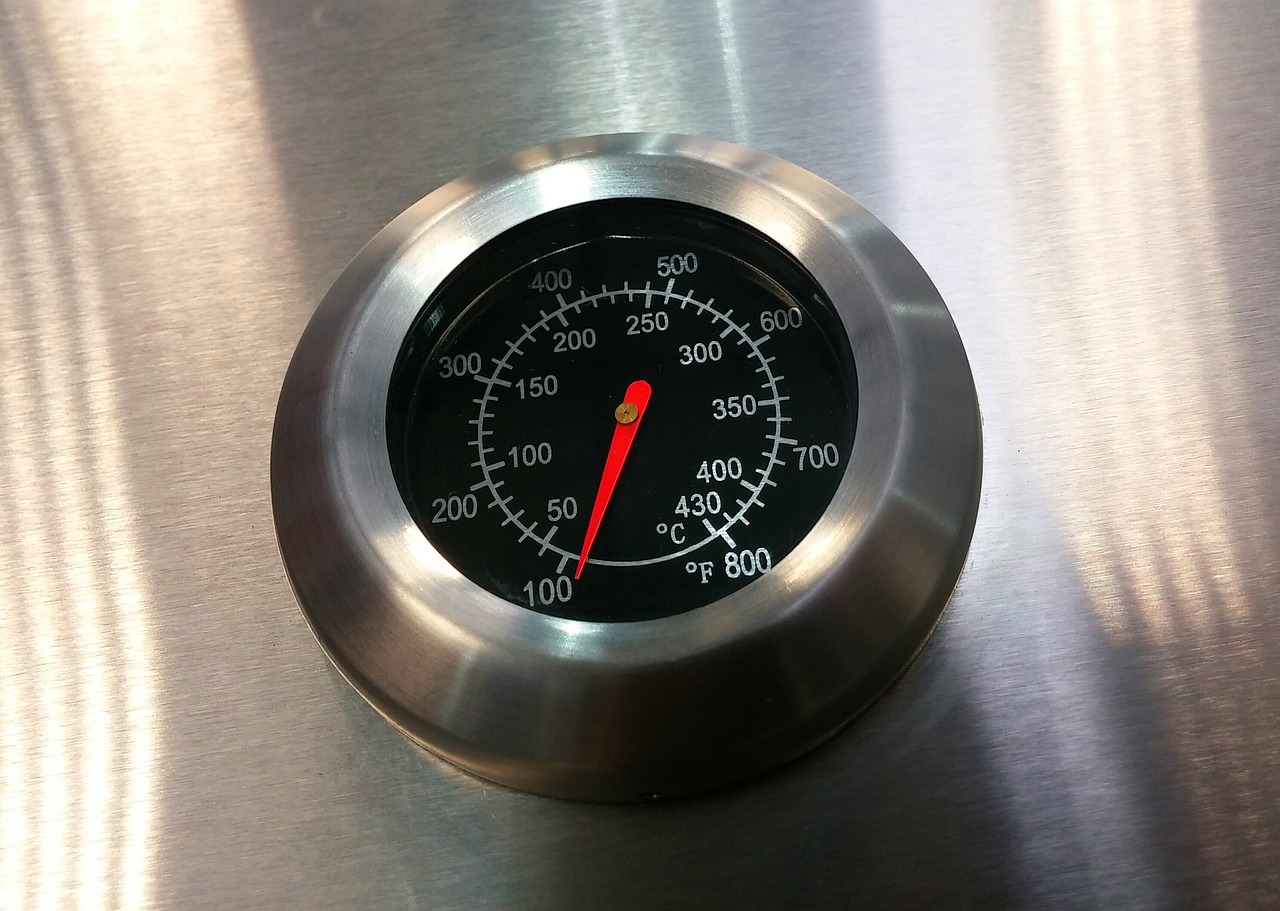
Understanding Pet Anxiety
Fireworks can be a thrilling spectacle for humans, but for our furry friends, they often represent a source of tremendous stress and anxiety. Understanding how pets react to loud noises is crucial for pet owners who want to protect their beloved companions. When those booming sounds fill the air, many pets exhibit signs that can range from mild discomfort to severe panic. It's essential to recognize these signs early on to take appropriate action.
Pets, especially dogs and cats, have a heightened sense of hearing compared to humans. This means that the crackling and booming of fireworks can sound overwhelmingly loud to them. Just imagine how you might feel if you were surrounded by loud explosions without any explanation — it would be terrifying! Common signs of anxiety in pets during fireworks include:
- Hiding: Many pets will seek refuge in closets, under beds, or in any small space they can find.
- Vocalization: Increased barking, whining, or meowing can indicate distress.
- Pacing: Some pets may walk in circles or pace back and forth, unable to settle down.
- Destructive Behavior: Anxiety may lead to chewing furniture or scratching at doors.
- Excessive Drooling or Panting: These physical signs can indicate that your pet is overwhelmed.
Recognizing these signs is the first step in helping your pet cope. Just like us, pets experience a fight-or-flight response when faced with fear. This can lead to erratic behavior and even attempts to escape. Imagine a dog bolting from an open door, driven by sheer panic. This is why it’s vital to ensure that your pet is secure during fireworks displays.
Moreover, understanding the root of this anxiety can help pet owners develop effective strategies to mitigate it. Factors such as previous negative experiences with loud noises, lack of socialization, or even genetic predisposition can contribute to a pet's fear of fireworks. By addressing these underlying issues, you can help your pet feel more at ease during such stressful events.
In summary, being aware of how fireworks affect pets is crucial for their well-being. As responsible pet owners, it’s our duty to provide a safe and comforting environment for our furry companions. By recognizing the signs of anxiety and understanding the reasons behind them, we can take proactive steps to ensure that our pets remain calm and secure when the sky lights up with fireworks.
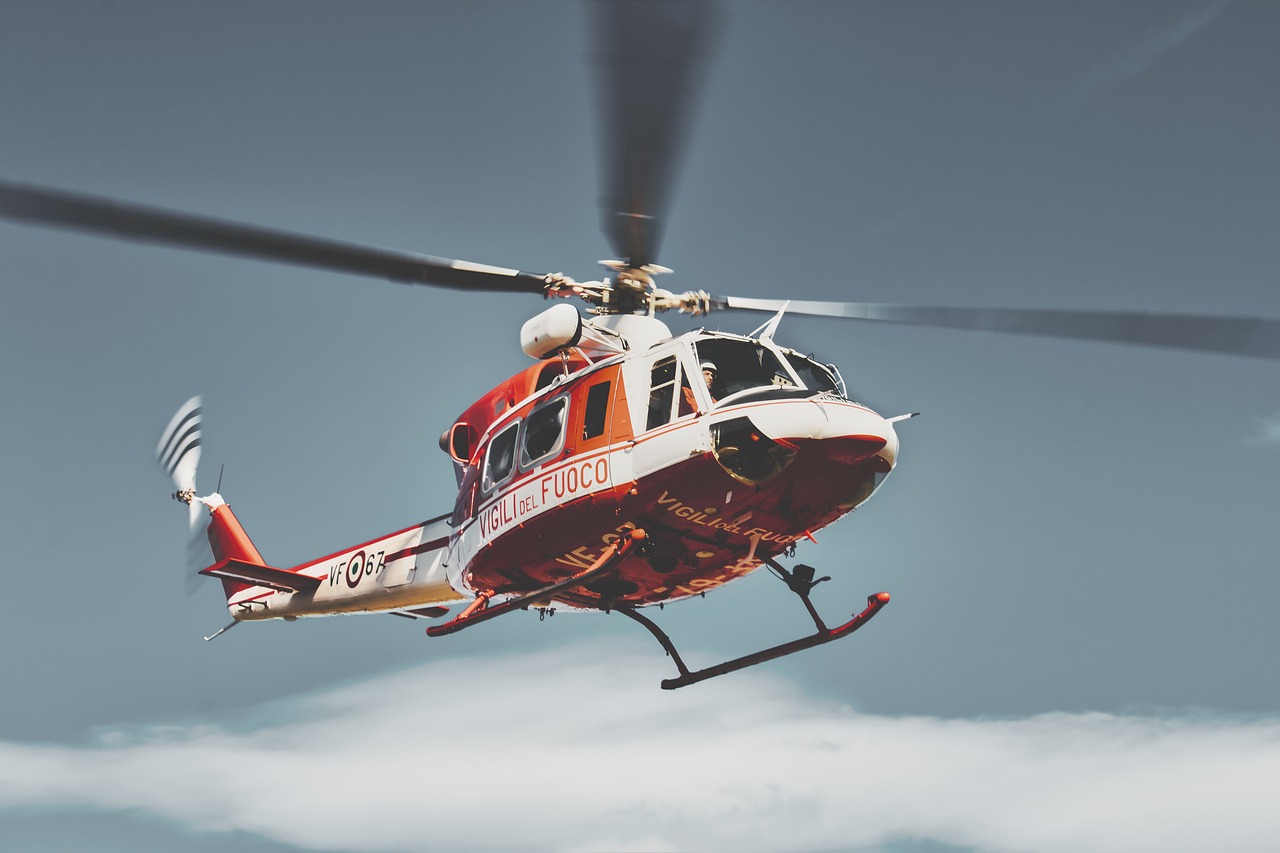
Preparing Your Home
When it comes to fireworks, preparation is key to ensuring your furry friends remain safe and calm. The loud bangs and bright flashes can be overwhelming for pets, leading to anxiety and stress. To create a haven for your pets during these noisy celebrations, it’s essential to take proactive steps. Think of your home as a fortress against the chaos outside; a little effort can go a long way in providing comfort.
First and foremost, soundproofing your home can significantly reduce the impact of those jarring noises. Heavy curtains can act as a barrier, muffling the sound of fireworks, while also blocking out the bright lights that can startle pets. Additionally, consider investing in a white noise machine. The soothing sounds can help drown out the fireworks, creating a more peaceful environment. Imagine your pet nestled comfortably on their favorite blanket, blissfully unaware of the ruckus outside!
Implementing soundproofing techniques is easier than you might think. Here are a couple of strategies you can employ:
- Use heavy drapes to cover windows and doors.
- Utilize white noise machines or play soft music to mask the sounds.
These simple adjustments can transform your living space into a cozy retreat for your pets, allowing them to feel secure during fireworks.
Another effective strategy is to create a designated safe space for your pets. This could be a quiet room or a cozy corner filled with their favorite toys and blankets. Think of it as their personal sanctuary where they can retreat when the world gets too loud. To enhance this space, consider adding familiar items that carry their scent, as this can provide a sense of comfort and security. Ensure that the area is away from windows and doors where the sounds are most pronounced.
In addition to creating a safe space, using calming products can be incredibly beneficial. Products like anxiety wraps provide gentle pressure that can help soothe anxious pets. Similarly, pheromone diffusers release calming scents that mimic natural pheromones, which can help reduce stress. These products can be especially helpful in creating a tranquil atmosphere amidst the chaos of fireworks. Just imagine your pet, wrapped snugly in an anxiety wrap, feeling the gentle pressure that helps ease their racing heart!
Lastly, consider incorporating behavioral training techniques into your preparation routine. Gradual exposure to loud noises can help desensitize your pets over time. You can start by playing recordings of fireworks at a low volume while offering treats and praise, slowly increasing the volume as your pet becomes more comfortable. This method not only helps them cope with fireworks but also builds their confidence. Think of it as training them to be brave little warriors in the face of noise!
Soundproofing Techniques
When it comes to ensuring the safety and comfort of our beloved pets during fireworks displays, can be a game-changer. The loud bangs and crackles can send even the calmest pets into a whirlwind of anxiety. By creating a more tranquil environment, we can help them feel more secure. So, how can we achieve this? Let’s dive into some effective strategies!
First off, one of the simplest yet most effective methods is to use heavy curtains. These thick drapes act as a barrier against the external noise, muffling the sound that seeps into your home. Imagine your pet nestled comfortably on their favorite spot, while the outside world fades into a dull roar. By blocking out the fireworks' clamor, you’re offering them a sanctuary of peace.
Another fantastic option is to invest in a white noise machine. This device produces a consistent sound that can help mask the sudden booms of fireworks. It's like creating your own little sound bubble! You can also use fans or air conditioners to generate background noise, which can further drown out the startling sounds. The key is to make the environment feel as normal as possible, allowing your pet to relax.
Additionally, consider using soundproofing foam panels. While this might sound a bit extreme, these panels can be installed in areas where your pets spend most of their time. They absorb sound and reduce echo, creating a more serene atmosphere. Think of it as giving your pet a cozy, quiet den where they can feel safe.
For those who enjoy a DIY approach, you can also create a makeshift sound barrier with blankets and pillows. By draping heavy blankets over furniture or creating a fort-like structure, you can help block out noise. This not only provides a physical barrier but also creates a fun and inviting space for your pet to retreat to during the fireworks.
In summary, implementing soundproofing techniques is an essential step in safeguarding your pet's well-being during fireworks. By utilizing heavy curtains, white noise machines, soundproofing foam, and creative DIY solutions, you can significantly reduce the stress and anxiety your furry friends may experience. Remember, a calm pet is a happy pet!
- What are the signs of anxiety in pets during fireworks?
Common signs include excessive barking, hiding, trembling, and attempts to escape. If your pet displays these behaviors, it’s crucial to address their anxiety.
- Can I use calming products alongside soundproofing techniques?
Absolutely! Combining calming products like anxiety wraps or pheromone diffusers with soundproofing methods can create a more effective approach to managing your pet's stress.
- How can I help my pet get used to loud noises?
Gradual exposure to similar sounds through behavioral training can help desensitize your pet. Start with lower volumes and gradually increase them as your pet becomes more comfortable.
Creating a Safe Space
When it comes to fireworks, creating a safe space for your pets is one of the most effective ways to help them cope with the loud noises and flashing lights. Imagine how comforting it would be for your furry friend to have a cozy nook where they can feel secure, away from the chaos outside. Start by choosing a quiet room in your house, preferably one that is furthest from the noise. This can be a bedroom, basement, or any area that is less exposed to the sounds of fireworks.
Next, think about how to make this space inviting and relaxing for your pet. You can include their favorite blankets or bed to create a familiar environment. Consider adding some of their favorite toys to keep them occupied and distract them from the noise. A few treats can also go a long way in making the space feel like a haven. You might even want to use a pet-safe pheromone diffuser in the room, which can help to calm their nerves and create a soothing atmosphere.
Moreover, soundproofing this area can significantly enhance its effectiveness. Heavy curtains can block out the sound and light from outside, while a white noise machine can drown out the booming fireworks. If you don’t have a white noise machine, a simple fan or soft music can also do the trick. The goal here is to create an environment that feels safe and secure, allowing your pet to relax and ride out the storm of fireworks without unnecessary stress.
Lastly, it's important to monitor your pet's behavior in this safe space. Some pets may initially resist being confined to a specific area, while others may instinctively seek out this sanctuary. Be patient and offer reassurance. Sit with them for a while, provide gentle pets, and speak softly to help them feel at ease. Over time, they will learn to associate this space with comfort and safety, making it a go-to retreat during any fireworks display.
- How can I tell if my pet is anxious during fireworks?
Look for signs such as hiding, trembling, excessive barking, or attempts to escape. If your pet is displaying these behaviors, it's a clear indication that they are feeling stressed. - What should I do if my pet runs away during fireworks?
Always ensure your pet has proper identification and is microchipped. If they do get scared and run, immediately check local shelters and use social media to alert your community. - Are there any medications I can give my pet for anxiety?
Consult your veterinarian about possible calming medications or supplements that can help your pet cope with anxiety during fireworks.
Using Calming Products
When it comes to helping our furry friends cope with the stress of fireworks, calming products can be a lifesaver. These products are designed to create a soothing environment and alleviate anxiety, making them essential tools for pet owners. From anxiety wraps to pheromone diffusers, there’s a wide array of options available that cater to different needs and preferences.
One popular choice is the anxiety wrap, which works by applying gentle pressure to your pet's body, similar to a hug. This comforting sensation can help reduce anxiety levels significantly. Many pet owners have reported that their dogs and cats respond positively to these wraps, often settling down more quickly than they would without them. It's like giving your pet a warm, reassuring embrace when the world seems chaotic!
Another excellent option is pheromone diffusers. These products release synthetic versions of the calming pheromones that mother animals produce to reassure their young. By mimicking these natural scents, pheromone diffusers can create a calming atmosphere in your home. They are particularly effective because they work continuously, providing a steady stream of comfort during those noisy fireworks displays.
It’s important to note that while these products can be incredibly helpful, their effectiveness can vary from pet to pet. Some pets may respond well to one product but not another. Therefore, it might take some trial and error to find the right solution for your furry friend. To help you navigate this process, here’s a quick table summarizing some of the most popular calming products:
| Product Type | Description | Effectiveness |
|---|---|---|
| Anxiety Wraps | Provides gentle pressure to soothe anxiety. | Generally effective for many dogs and cats. |
| Pheromone Diffusers | Releases calming scents to create a soothing environment. | Effective for a wide range of pets. |
| Calming Treats | Specially formulated treats that promote relaxation. | Varies by pet; some pets love them, others may not. |
| Music Therapy | Soothing music or white noise machines to drown out loud sounds. | Can be effective in creating a calm atmosphere. |
In addition to these products, consider incorporating behavioral techniques alongside calming aids. For example, you can create a positive association with these products by rewarding your pet with treats or praise when they wear an anxiety wrap or are near a pheromone diffuser. This can help them feel more comfortable and less anxious over time.
Ultimately, the key is to be proactive. Start using these calming products well before the fireworks begin, allowing your pet to get used to them in a stress-free environment. By doing so, you’re not just preparing for a single event; you’re equipping your pet with the tools they need to handle future stressful situations, making them more resilient and secure.
Behavioral Training
Behavioral training is one of the most effective ways to help our furry companions cope with the stress that fireworks can bring. Just like humans, pets can experience fear and anxiety, but the good news is that we can teach them to handle these situations better. Think of it as preparing them for a big game; the more practice they get, the more confident they become. Gradual exposure to sounds that mimic fireworks can significantly decrease their anxiety levels over time. So, how do we go about this? It starts with understanding your pet's comfort zone.
Begin by playing recordings of fireworks at a low volume while engaging in fun activities with your pet. This can create a positive association with the sound. Over time, you can gradually increase the volume, always ensuring that your pet remains calm and relaxed. If they show signs of distress, it’s crucial to lower the volume and try again later. This process is often referred to as desensitization, and it's a powerful tool in your training arsenal.
Moreover, incorporating positive reinforcement techniques is vital. When your pet remains calm during these sound exposure sessions, reward them with treats, praise, or their favorite toy. This not only encourages good behavior but also helps them associate loud noises with positive experiences. Remember, patience is key! Some pets may take longer to adjust than others, so don’t rush the process.
In addition to sound exposure, you can teach your pets commands that promote calmness. For instance, commands like "sit," "stay," or "place" can be beneficial. These commands can redirect their focus away from the noise and onto you, creating a sense of security. It’s like giving them a safe harbor in a stormy sea. Regular practice of these commands in a calm environment can make a world of difference when the fireworks start.
Finally, consider enrolling your pet in a training class that focuses specifically on anxiety management. Professional trainers can provide tailored strategies that fit your pet’s unique needs. They can also offer insights into behavioral cues that you might miss, ensuring that you are fully equipped to help your pet navigate their fears.
- How can I tell if my pet is anxious during fireworks? Look for signs such as trembling, hiding, excessive barking, or attempts to escape. These behaviors indicate that your pet is feeling stressed.
- What calming products are effective for pets? Products like anxiety wraps, pheromone diffusers, and calming treats can help soothe pets during stressful situations.
- Is it safe to use medication for my pet’s anxiety? Always consult with your veterinarian before administering any medication. They can recommend safe options tailored to your pet’s needs.
- Can all pets be trained to cope with fireworks? While most pets can benefit from training, some may require more time and patience than others. Every pet is unique!

Outdoor Safety Precautions
When the skies light up with colorful explosions, it can be a magical experience for humans, but for our furry companions, it can be a nightmare. Ensuring the safety of your pets during fireworks displays is crucial. First and foremost, always keep your pets on a leash. This simple act can prevent them from bolting in fear when the first crackle of fireworks fills the air. Imagine your pet, startled and disoriented, dashing into the night—it's a scenario no pet owner wants to face.
Moreover, it’s essential to ensure your pets have proper identification. Whether it’s a collar with an ID tag or a microchip, having a way to identify your pet can make all the difference if they do escape. The last thing you want is to lose your beloved companion in the chaos of fireworks. In fact, statistics show that more pets go missing around holidays involving fireworks than at any other time of the year. This underscores the importance of being proactive.
Timing is another critical factor. If you plan to take your pets outdoors during fireworks, consider the schedule of local displays. Try to plan your walks or outdoor activities either well before the fireworks start or after they have concluded. This way, you can avoid exposing your pets to sudden loud noises that can trigger their anxiety. If you know a fireworks show is happening, it might be best to keep your pets indoors during that time.
In addition to these precautions, creating a safe outdoor environment is vital. If you must be outside, ensure that your pets are in a secure area where they cannot escape. This could mean using a fenced yard or a secure leash system. Always keep an eye on them, especially during the moments leading up to the fireworks. The anticipation can be just as alarming as the event itself!
Finally, consider the use of calming products even when outside. Items like calming collars or sprays can help soothe your pet during stressful situations. Just as humans might sip chamomile tea to relax, our pets can benefit from these calming aids. Remember, a little preparation goes a long way in ensuring your pet feels safe and secure.
Q: How can I tell if my pet is anxious during fireworks?
A: Look for signs such as hiding, excessive barking, trembling, or attempts to escape. If your pet is showing these behaviors, they are likely feeling anxious.
Q: What can I do to help my pet if they are scared of fireworks?
A: Create a safe space for them, use calming products, and consider behavioral training techniques to help them cope with loud noises.
Q: Should I take my pet to fireworks displays?
A: It’s generally not advisable to take pets to fireworks displays due to the loud noises and potential for them to become frightened and run away.
Q: Are there any specific calming products you recommend?
A: Products like anxiety wraps, pheromone diffusers, or calming treats can be effective in helping pets feel more secure during stressful situations.
Leash and Identification
When it comes to keeping our beloved pets safe during the chaos of fireworks, are two of the most critical components. Imagine a scenario where your furry friend, startled by the loud booms and bright flashes, bolts in fear. Without a secure leash or proper identification, the chances of them getting lost increase dramatically. It's essential to ensure that your pet is always on a leash when outside during fireworks displays. This not only keeps them physically secure but also provides you with peace of mind knowing that you have control over their movements.
Furthermore, having up-to-date identification is crucial. A collar with an ID tag containing your contact information can be a lifesaver. In case your pet does escape, a good Samaritan can quickly reach out to you. It's also wise to consider microchipping your pet as a more permanent form of identification. Microchips are small devices implanted under your pet's skin, and they can be scanned by veterinarians or shelters to reveal your contact details. This is especially useful if your pet loses their collar during an escape.
Here are a few tips to enhance your pet's safety:
- Use a sturdy leash: Opt for a leash that is strong enough to withstand sudden pulls, especially if your pet is frightened.
- Double-check collars: Ensure that collars are secure and not too loose or too tight. A collar that slips off can be a disaster.
- Update information: Regularly check that your pet's ID tag has your current contact information, especially if you’ve recently moved.
- Consider a harness: For pets that tend to pull, a harness can provide better control and comfort.
By taking these precautions, you can significantly reduce the risk of losing your pet during fireworks displays. Remember, the goal is to keep your furry companions safe and sound while you enjoy the festivities. So, before the fireworks begin, make sure your pet is securely leashed and identifiable. This small step can lead to a big difference in keeping your pets safe!
Q: What should I do if my pet gets scared during fireworks?
A: If your pet shows signs of fear, try to comfort them by speaking softly and offering treats. Create a safe space for them to retreat to, and consider using calming products if necessary.
Q: Is it safe to take my pet outside during fireworks?
A: It is generally safer to keep pets indoors during fireworks. If you must take them outside, ensure they are on a leash and have proper identification.
Q: How can I help my pet get used to loud noises?
A: Gradual exposure to similar sounds and positive reinforcement can help desensitize your pet to loud noises over time. Consider using recordings of fireworks at a low volume during training sessions.
Q: What calming products are effective for pets during fireworks?
A: Products like anxiety wraps, pheromone diffusers, and calming treats can help soothe pets during stressful situations like fireworks displays.
Timing Your Outings
When it comes to ensuring your pet's safety during fireworks, timing is everything. It’s not just about when the fireworks start; it’s also about planning your pet's outdoor activities around those loud celebrations. Imagine the chaos that ensues when a sudden bang disrupts a peaceful evening walk. Your furry friend, who was happily sniffing around, might suddenly bolt in fear, leading to potential accidents or even loss. To avoid this, it’s crucial to be proactive.
One effective strategy is to schedule your outdoor excursions for times when you know the fireworks are less likely to occur. For instance, if you’re aware of a local fireworks display, consider taking your pet for a walk earlier in the day or later in the evening, after the festivities have wrapped up. This way, you can enjoy the outdoors without the added stress of unexpected loud noises.
In addition to timing your walks, it’s also wise to stay updated on local events. Many communities announce fireworks displays well in advance, so keep an eye on local calendars or social media pages. You might even want to consider creating a fireworks schedule for your area, so you’re always prepared. Here’s a simple table to help you keep track:
| Date | Event | Fireworks Time |
|---|---|---|
| July 4 | Independence Day Celebration | 9:00 PM |
| New Year's Eve | New Year Countdown | 12:00 AM |
| Various Dates | Local Festivals | Check Local Listings |
Moreover, when planning your outings, consider the time it takes for your pet to adjust. If you know that the fireworks will start at a specific time, aim to return home and settle in at least an hour before the first bang. This way, your pet can acclimate to being indoors, away from the noise, and you can create a comfortable environment for them.
Lastly, while it’s important to plan around fireworks, don’t forget to have a backup plan. In case of unexpected fireworks or loud noises, having a safety kit ready can make all the difference. Include items like calming treats, your pet's favorite toys, and a cozy blanket in a designated spot. This way, if you do have to be out during a fireworks display, your pet will have a safe retreat waiting for them at home.
In conclusion, by being mindful of the timing of your outings during fireworks season, you can significantly reduce your pet's anxiety and keep them safe. Remember, a little preparation goes a long way in ensuring a stress-free experience for both you and your furry companion.
- What should I do if my pet is frightened by fireworks? - Try to create a calm environment, use calming products, and stay close to your pet to comfort them.
- Can I take my pet to a fireworks display? - It's generally not recommended, as the loud noises can cause extreme anxiety and lead to dangerous situations.
- What calming products are effective for pets during fireworks? - Anxiety wraps, pheromone diffusers, and calming treats can help soothe anxious pets.
Frequently Asked Questions
- Why do pets get anxious during fireworks?
Pets often experience anxiety during fireworks due to the loud noises and bright flashes that can be overwhelming. Their acute hearing makes them more sensitive to sounds that we may not find alarming. This sudden stimulation can trigger fear responses, leading to stress and anxiety.
- What are some signs of anxiety in pets?
Common signs of anxiety in pets include excessive barking, hiding, pacing, trembling, and even destructive behavior. If your furry friend is suddenly clingy or refuses to eat, these could also be indicators that they are feeling anxious.
- How can I prepare my home for my pet during fireworks?
To prepare your home, create a safe space where your pet can retreat. Use heavy curtains to muffle sound, and consider playing soft music or white noise to mask the fireworks. Also, make sure to have their favorite toys or blankets nearby to provide comfort.
- Are there any calming products I can use for my pet?
Yes! There are several calming products available, such as anxiety wraps, pheromone diffusers, and calming treats. These can help soothe your pet and make them feel more secure during stressful situations like fireworks.
- What is behavioral training, and how can it help?
Behavioral training involves gradually exposing your pet to sounds similar to fireworks in a controlled environment. This desensitization process can help reduce their anxiety over time, making them more comfortable during actual fireworks displays.
- What safety precautions should I take if I take my pet outside during fireworks?
Always keep your pet on a leash and ensure they have proper identification, such as a collar with tags or a microchip. It's also wise to time your outdoor activities to avoid fireworks displays, reducing your pet's exposure to loud noises.







